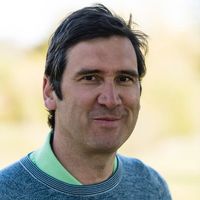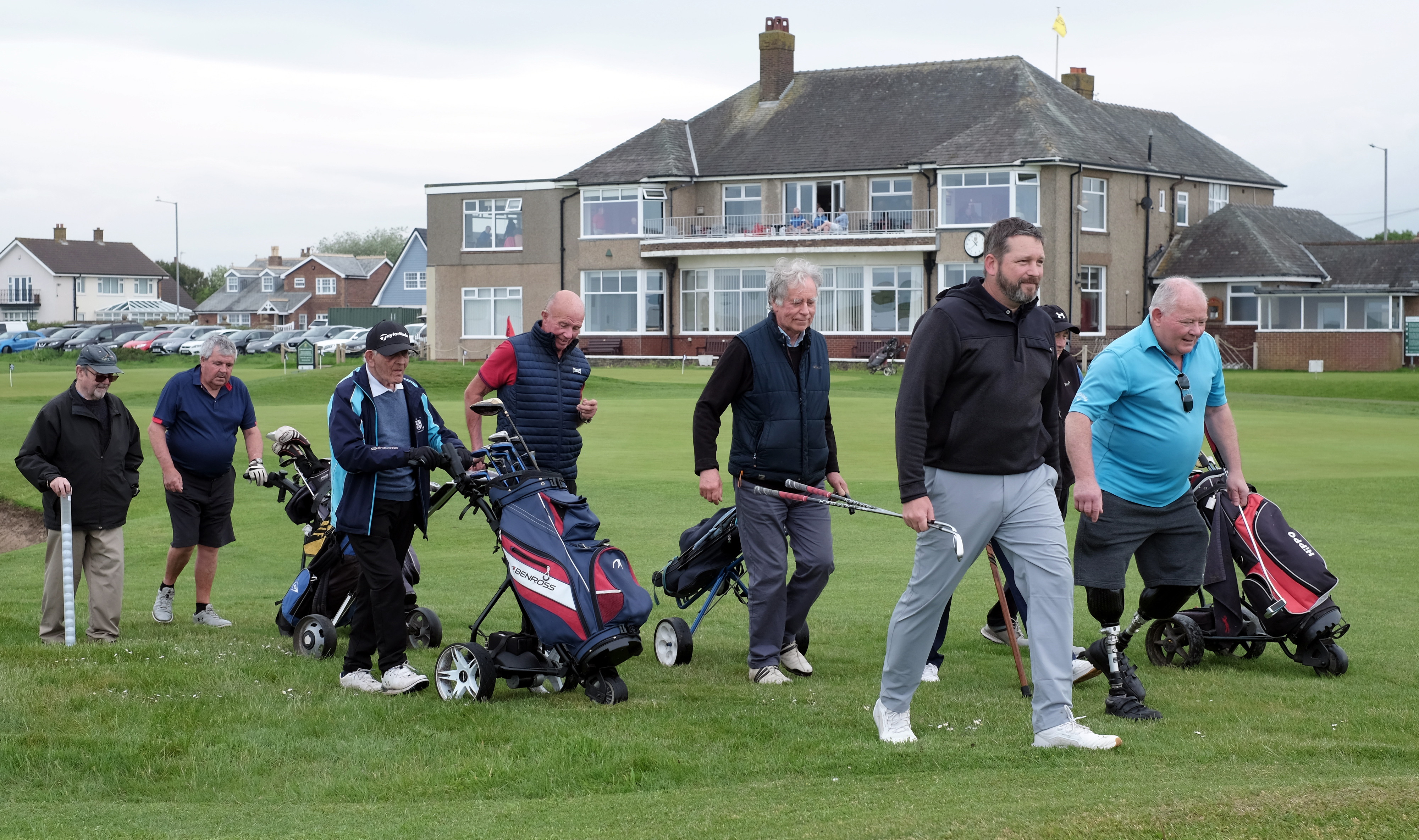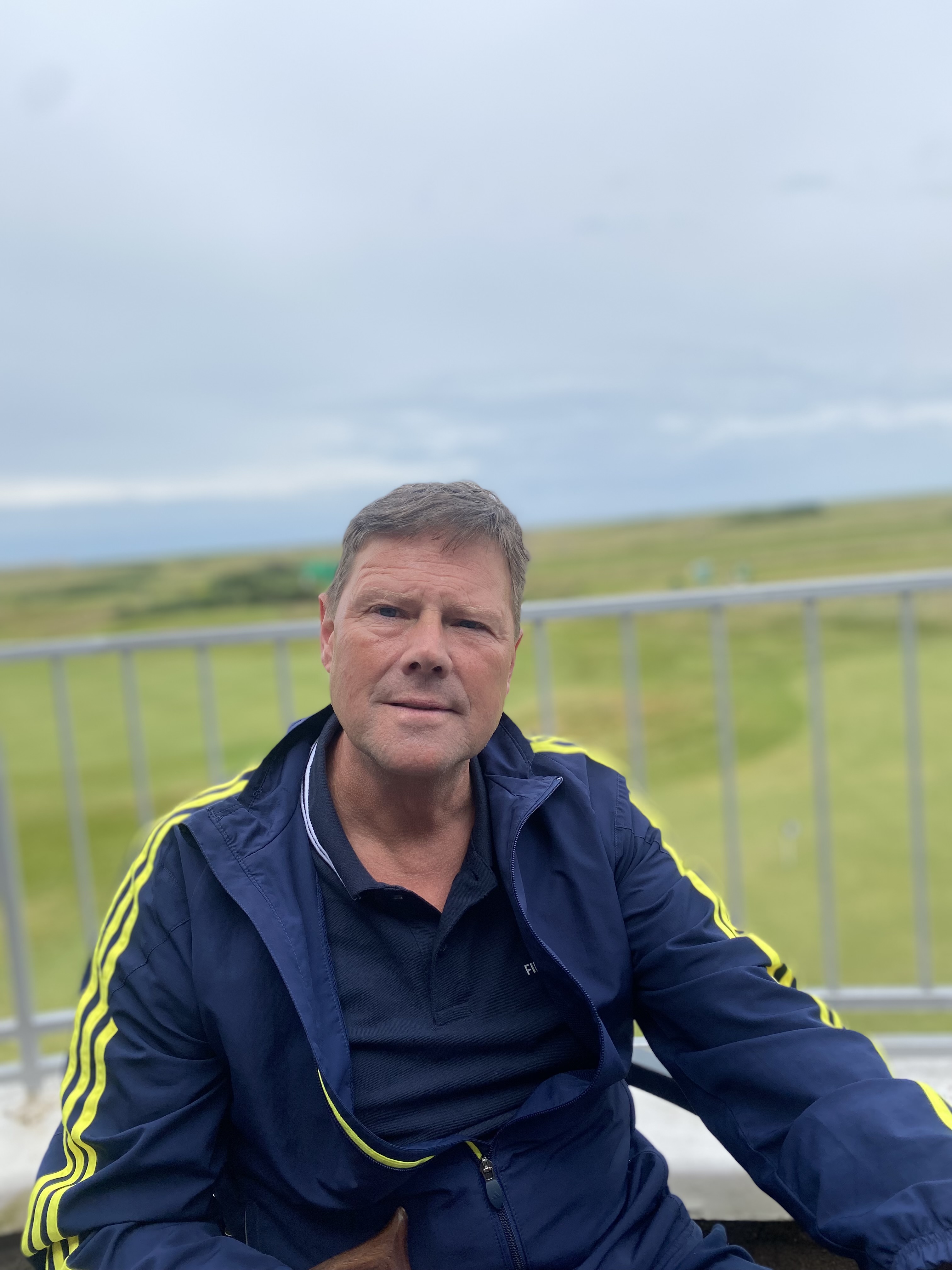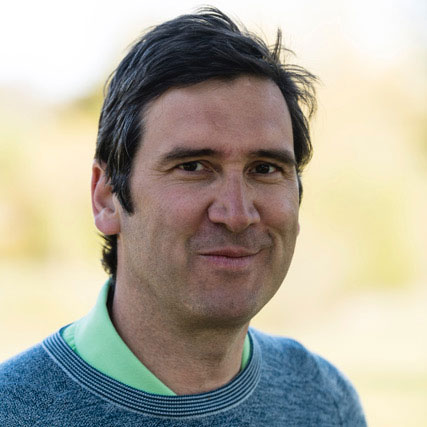'Being Hoisted Out Of Bed And Starting Again, You Get Some Kind Of Social Structure Back. It's Been A Saviour For Me' – Meet The PGA Pro Helping Stroke Survivors Change Their Lives Through Golf
For the past seven years, Fleetwood Golf Club professional Dan Skelcher has been working wonders with some very resilient golfers


Subscribe to the Golf Monthly newsletter to stay up to date with all the latest tour news, equipment news, reviews, head-to-heads and buyer’s guides from our team of experienced experts.
You are now subscribed
Your newsletter sign-up was successful
Want to add more newsletters?

Delivered daily
Daily Newsletter
Sign up for all the latest tour news, gear reviews, head-to-heads and buyer’s guides plus features, tips from our top 50 coaches and rules advice from our expert team.

Once a week
Kick Point
Sign up to our free Kick Point newsletter, filled with the latest gear reviews and expert advice as well as the best deals we spot each week.

Once a week
Women's Golf Edit
Sign up to our free newsletter, filled with news, features, tips and best buys surrounding the world of women’s golf. If you’re a female golfer, you won’t want to miss out!
On the face of it, Fleetwood is a very normal golf club, albeit a brilliant links on the Fylde coast in the North West and one of the oldest UK&I courses. But here, every Tuesday and Thursday morning, a collection of stroke survivors gather to play a few holes.
This midweek roll-up looks much like any other group of friends who have come together for a game of golf. Nobody's feelings are spared when someone hits a shank, players are gently ribbed when a putt slips by while others are encouraged for hitting a good drive. Underneath everything there is a collective warmth and friendship that you might struggle to find anywhere on the planet.
As well as the golf and the gentle ridiculing, everyone is here to get out of the house, see their mates and put a smile on one another’s faces. Some had played golf before, others hadn’t touched a club, but they’ve all been through the terrifying and often life-changing process of having a stroke and then trying to piece together a life after it.

Dan Skelcher leads his stroke survivors group
'He has been brilliant'
At the heart of the get-togethers is Dan Skelcher. Your PGA Professional can be many things to many people; a swing coach, custom fitter, travel guide or just a friendly face in the pro shop. Skelcher is all of these and, for the Tuesday and Thursday crowd, he’s a genuine hero. John Lanes helped get this group going in 2017 and now Jim Woods has taken over some of the organising duties.
“I cannot speak highly enough of that man,” Woods nods in the direction of Skelcher. “He's been an example, in my view, of where golf professionals can go in helping those less fortunate than themselves. It's not all about golf, a lot of it is about the personality of the man. He has been brilliant. He makes everyone feel good.
“At the start we just hit it off and we were both after the same thing and that was helping those who have suffered a stroke. You’ve only got to look around here and you can talk to anyone, everyone so looks forward to coming here. But they only look forward to it because Fleetwood have taken it upon themselves to accept and integrate us. In this day and age it takes a lot for a golf club to do that.”
One of the first things that you’ll notice when entering the club is that they’ve installed a stairlift to help members of the group head upstairs for a drink and a game of table bowls, while around 150 members will play in an annual competition to help support the group.
Subscribe to the Golf Monthly newsletter to stay up to date with all the latest tour news, equipment news, reviews, head-to-heads and buyer’s guides from our team of experienced experts.
Headlines for the right reasons
Golf clubs often attract the worst kind of headlines for archaic dress codes and traditions that do nothing to attract new golfers. Fleetwood on the other hand makes the very best of itself and, for 16 golfers, it provides a setting of fellowship and warmth that every golf club should provide.
Sitting around a table of the ‘Tuesday crowd’ the appreciation for Skelcher comes flying out.
“When I started, my right arm, I couldn't use my right hand. I could hardly walk and my voice wasn't very good. But since I've been coming here, my right arm now is strong as an ox because I've been using it on the club. So it's been a saviour for me. He just tells me what to do…
“Being hoisted out of bed, just starting again here, you get some kind of social structure back. It gives you confidence…
Pauline Hayes’s husband John had always played golf but now has no use in his left arm.
“John has been coming now since before lockdown. I had to wheel him in in a wheelchair, originally, because he couldn't walk very far and I wasn't sure that they would take him on but they did. They were absolutely wonderful with him, they helped him, they got him out onto the putting green, into the simulator room.
“I stayed with him at first because I was a bit unsure about moving him but then they just said, you go up and have a coffee. Honestly, it does so much good for John because he spends time with some right-minded people. I've never played golf so I can't talk to him the way that he can talk to the other golfers. And I will have a coffee with the other wives so it’s good for me and it's good for John.”
Golf can be hard enough to teach without having a group with very different physical limitations but Skelcher is fully aware of everyone’s capabilities and who needs a bit of assistance.
“It's just the same as teaching anyone golf, you find out what their limitations are and it’s figuring it out. Then we work and build on that. I remember a woman, Lisa, who came along for a couple of years. She couldn't coordinate putting her hand on the grip when it was down here so we just learned to pick it up and put it in this position. She could do it and then come down, and then she could swing the club. It was unbelievable. Just that light bulb moment,” explains Skelcher.

Dan Skelcher
Something to look forward to
You’d like Skelcher a lot, likewise his fellow Pro Ian Taylor. Golfers enter the pro shop with a smile and leave with a bigger one. It can’t be underestimated what a friendly face can do for anyone’s day, let alone when your life’s been tipped upside down by a stroke.
After playing a few holes Skelcher oversees a team challenge which sees everyone chase one another around the putting green before retiring for a chat and a drink. It’s as social a collection of like-minded people as you could ever wish for, people are genuinely pleased to see each other and, in among all the sarcy comments, they will talk of how inspiring they all find one another.
“I think it's changed a lot of their lives, it's given them something to look forward to and that's rewarding for me. It's made me quite humbled to see someone with no belief or confidence in themselves, to then all of a sudden have a drive or a goal, just chasing a little white ball around the course. I've really just been a catalyst for that, just facilitating how the club's embraced the group.
“The members have all welcomed them, we often nip out on the course and sneak in because some of them can't manage any more than two or three holes and that’s kind of made it work even more. When we started it the board of directors really embraced it – just simple things like the stairlift, they saw that there was a struggle and they helped them out the best way they could, without any question. And they’ve given the wives a space to sit and just share experiences. As they say, nobody cares for a carer but the club do just that.
“It's been a journey, it really has. The challenge has been making it consistent and I've always set the time in my diary to provide that. That's been the success of it because they go to other groups and they fall by the wayside but I think the greatest success is the continuity of delivering regular sessions for them.”

Kevin Duffy
'I can't wait for Thursdays'
Kevin Duffy had a stroke eight years ago and, three months later, had a breakdown. Then he was introduced to the group by John Lanes and Jim Woods and he took up golf. Of the 10 golfers we speak to everybody has had a different version of a stroke, Duffy describes himself as fortunate given that he had a collection of mini strokes.
"I was a lot luckier than a lot of them. I had what you call spurt strokes, it was like one, and then about half an hour later, another one. And then another one, and then another one. I was 50 at the time and it affected my legs, speech, balance and brain. I was just at work in a coffee shop and then all of a sudden things didn't feel too good, I thought it was because I hadn't had any breakfast."
Duffy, one of the characters in the group, is very aware of how Skelcher and his golfing buddies have helped to transform his life.
"Dan's brought a hell of a lot into my life. It's just the willingness to take us on. He's so approachable and he'll tell you a few jokes. He's just a very genuine guy, he's just that kind person. He's created this group where we all buzz off each other. The banter is genuine and that's because we're pushing each other on.
"When I first came I was so nervous that I was actually sick before I came. I really had to push myself to come but now I can't wait for Thursdays. I've always used my sense of humour to get over stuff, then I had my stroke and I hit a brick wall but here we've all been through the process of having a stroke, being scared of it, thinking what's going to happen, and how we're going to deal with it. So as a group, we try and deal with it."

Mark has worked in golf for over 20 years having started off his journalistic life at the Press Association and BBC Sport before moving to Sky Sports where he became their golf editor on skysports.com. He then worked at National Club Golfer and Lady Golfer where he was the deputy editor and he has interviewed many of the leading names in the game, both male and female, ghosted columns for the likes of Robert Rock, Charley Hull and Dame Laura Davies, as well as playing the vast majority of our Top 100 GB&I courses. He loves links golf with a particular love of Royal Dornoch and Kingsbarns. He is now a freelance, also working for the PGA and Robert Rock. Loves tour golf, both men and women and he remains the long-standing owner of an horrific short game. He plays at Moortown with a handicap of 6.